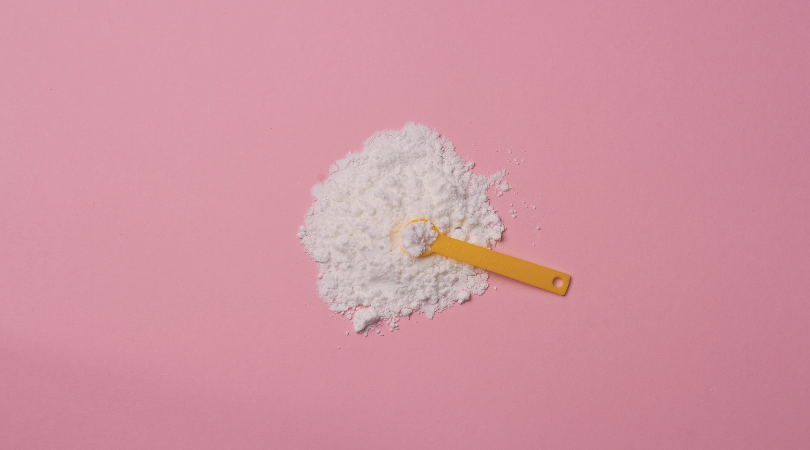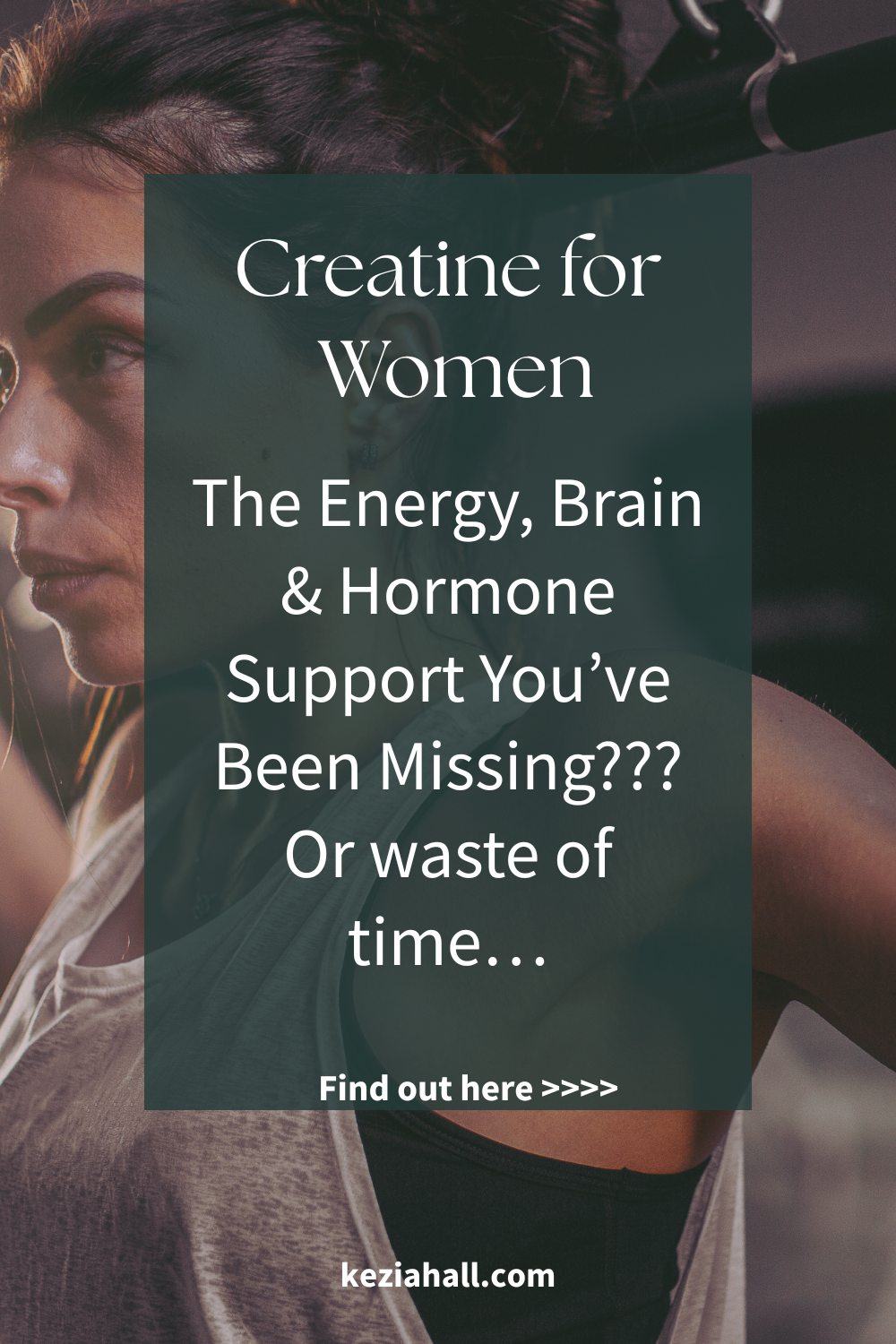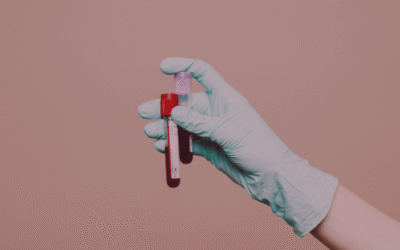
If you’ve been on Instagram for five seconds you’ve probably been sold creatine gummies, powders and promises. But what actually matters for real women with real lives, hormones and brains?
So this is your holistic, down-to-earth guide to creatine: what it is, how it works, why women might benefit, and – importantly – if it is a priority for you right now.
TL;DR: Creatine is like a portable power bank for your cells. For many women, it can support energy, brain fog and strength, especially around hormonal shifts, but it’s not a shortcut poor sleep, unmanaged stress and blood-sugar basics.
What is creatine (and how does it work)?
Energy = ATP on a cellular level and it’s made by mitochondria within each cell. During effort or stress, ATP gets used up fast. Creatine stores a high-energy phosphate and can quickly donate it to rebuild ATP, helping muscles (and brains!) get back to work. Think: quick-recharge for your cells.
- Most research uses creatine monohydrate – there are other forms out there but this is most studied.
- Typical daily amount: 3–5 g dose
- It’s tasteless-ish, mixes into water, cacao, coffee or smoothies etc.
Why it’s especially relevant for women
Women often have lower creatine stores (less muscle mass, sometimes lower meat intake). There’s also a relationship between oestrogen and creatine metabolism. Oestrogen supports how your body uses creatine for energy. When hormone levels fall (in your cycle or when you enter perimenopause or post partum) so can your energy. Supplemental creatine can help buffer those dips.
Where women may notice a benefit:
- Energy and brain fog. Many women describe feeling sharper and more mentally steady on creatine. Because the brain uses huge amounts of energy, creatine helps it “refuel” more efficiently, supporting focus, word recall, and mental endurance (especially during stress, sleep loss, or hormonal dips).
- Strength and training results. When paired with resistance or strength training, creatine helps muscles recover and rebuild more effectively. Over time this can mean better strength gains, improved body composition, and more energy for daily life. (I’ve found this to be true – I take about 3-5 g most days and find it help when I lift weights at the gym.)
- Perimenopause and postmenopause support. As oestrogen declines, both muscle mass and brain energy can drop. Research shows creatine may help counteract these changes – supporting muscle maintenance, bone health, and clearer thinking during hormonal transitions.
What the research says…
There is a lot of research on creatine, over 1000, but I want to highlight these two.
- Women’s lifespan review (2021): Creatine may support muscle, mood, brain and metabolic health across female life stages – pregnancy/postpartum through peri- and post-menopause.
(This is encouraging research. A. because it looks specifically at female physiology and B. it’s looking across the female lifespan – this never used to happen in research!!) - Cognition meta-analysis (2024): In randomised trials, creatine showed cognitive benefits, with signals of greater effects in females and in people under stress or sleep loss – without having to do any exercise! I found that interesting and it shows’s potential helpful for brain health, not just gym bros.
Translation: There’s a real brain-energy story here, alongside muscular benefits – especially when hormones are fluctuating.
Foundations first (this is where results actually come from)
Before you click “add to basket” (and yes, you can buy creatine pretty much anywhere!) , here’s the truth.
No supplement is a magic bullet. I’d only ever add in something like creatine after you’ve made a real effort to get these four foundations in place:
- Insulin & blood sugar: Steady meals with balanced carbs, protein and fibre.
- Sleep & stress: Consistent bedtime, good light hygiene, and something to calm your nervous system – breathwork, yoga, meditation, time in nature.
- Root causes: Know your why – iron, B12, thyroid, gut issues, perimenopause, whatever’s driving things underneath.
- Protein & fibre: Hit your daily targets with real food. More wholefood, less ultra-processed stuff.
Creatine can be brilliant – it’s safe, low-cost and has a ton of research behind it – so if you’re curious, go for it.
But I want to be honest: it’s not going to fix deeper problems, especially if you don’t yet know what those problems are.
Supplements are amazing tools (I use them daily), but they can’t outrun the chaos that comes from skipping the basics. Get those right first, that’s where the real transformation happens.
Who might benefit most
- Peri- and post-menopausal women (brain fog, fatigue, strength goals)
- Vegetarians/vegans or low-meat eaters (lower dietary creatine)
- Women training to build muscle or returning to training after a break
- High-stress / low-sleep seasons where mental energy needs buffering
How to use it (simple, sane, sustainable)
- Form: Creatine monohydrate
- Amount: 3–5 g daily (no cycling needed)
- Timing: Whenever you’ll remember – consistency > timing
- With training: Expect the best muscle/strength results with resistance work
- Hydration: Drink to thirst; mild water retention at first is normal and not fat gain
Will it make me gain weight?
Creatine can increase intramuscular water – that’s cellular hydration, not fat. Clothes/measurements often stay the same while strength improves. Some people find they get bloated on creatine so if that is you stop and address gut issues.
Can I get benefits without heavy lifting?
For brain benefits, yes – studies show cognitive gains even in sedentary adults, particularly under stress or sleep loss. For muscle growth, you need to pair it with exercise/resistance training.
Pregnancy/postpartum?
There’s emerging interest in foetal/maternal energy protection, but human data are still limited. If pregnant/breastfeeding, discuss with your clinician before starting anything new.
My holistic take (from 10+ years with real women)
Creatine can be a low-cost, low-risk add-on once your basics are steady. If you’re already working your plan and still feel foggy or you’re pushing into peri-/post-menopause strength goals, it’s worth a 6–8 week trial. Always listen to your body.
If, however, your blood sugar is chaotic, sleep is a mess and stress is off the charts – fix those first. That’s where the magic happens.
Work with me
Want a tailored plan (not another supplement shelf)?
Book a free Clarity Call to explore your goals and strategy, or jump straight into a ROOT deep-dive session where we map your actual drivers (labs, history, symptoms) and a 90-day plan you can start immediately. Start today >>







0 Comments